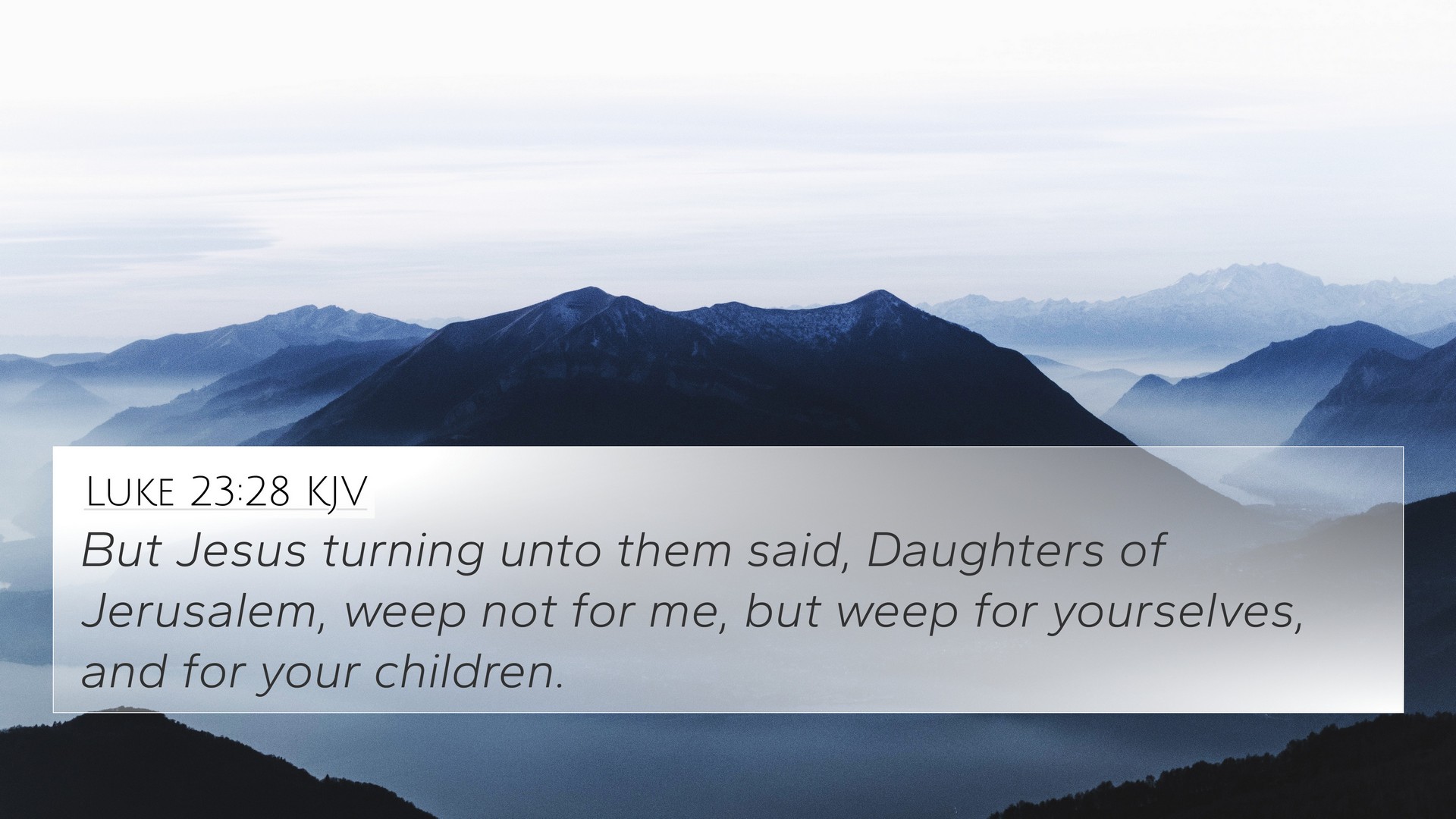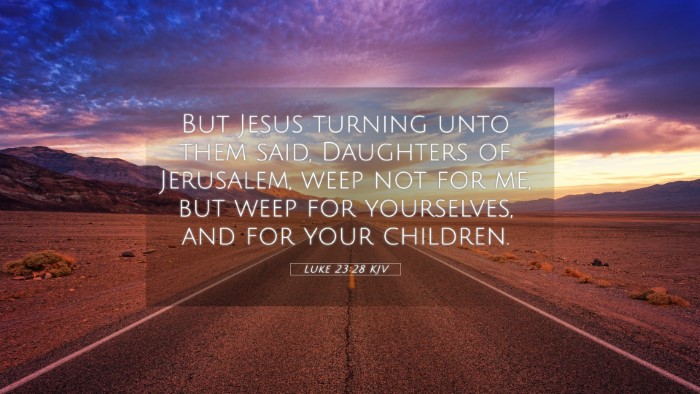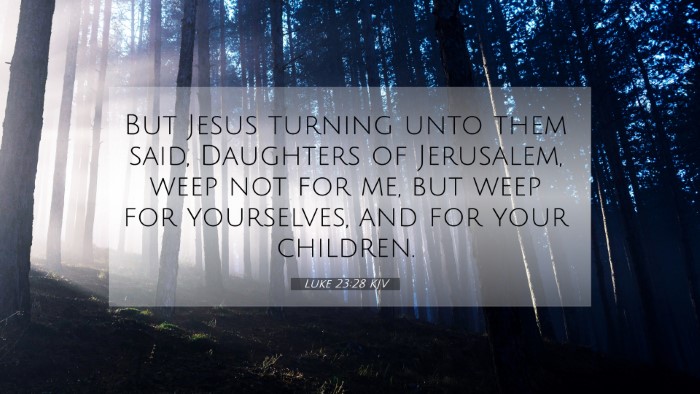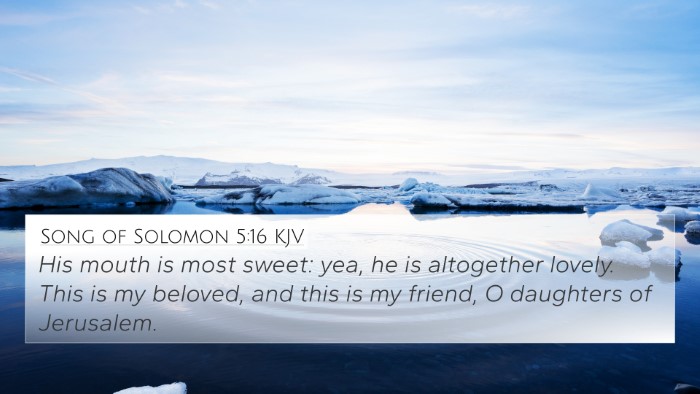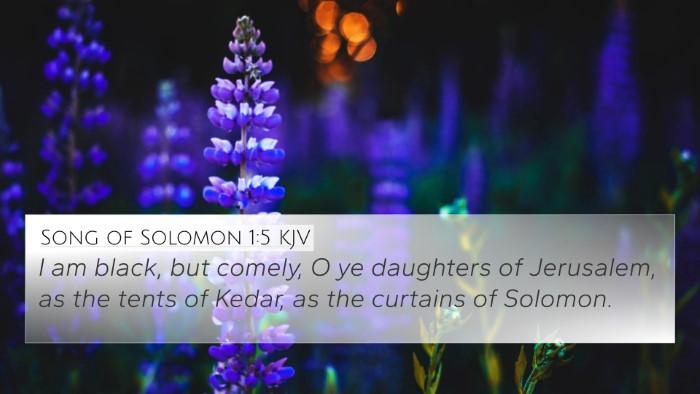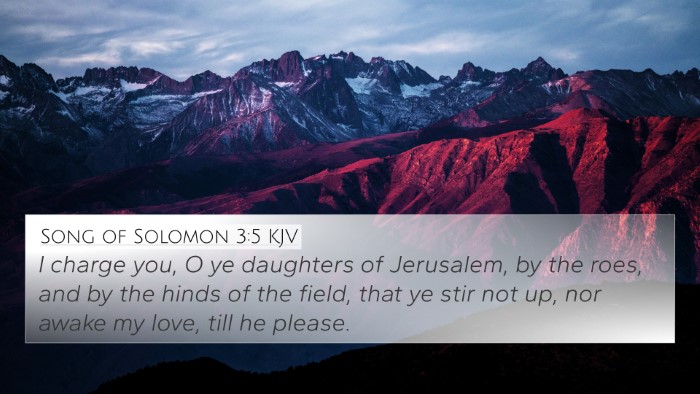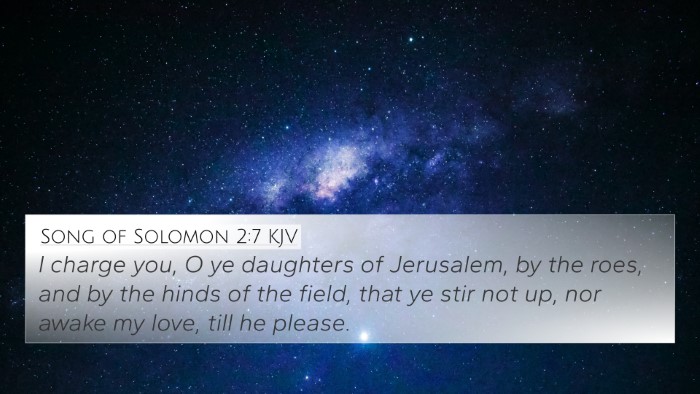Understanding Luke 23:28
In Luke 23:28, we find Jesus speaking to the women of Jerusalem as He is led to His crucifixion. The verse reads:
"But Jesus turning unto them said, Daughters of Jerusalem, weep not for me, but weep for yourselves, and for your children."
Meaning and Interpretation
This poignant interaction highlights several profound themes regarding compassion, suffering, and prophetic warning. Here, Jesus addresses the women with a call to direct their mourning towards the impending judgment that will affect not only them but also their children.
Insights from Public Domain Commentaries
- Matthew Henry:
Henry emphasizes the tenderness of Christ's heart, noting that even in His moment of extreme suffering, He shows concern for others. His exhortation to the daughters of Jerusalem is a profound call to recognize the greater implications of their tears, which should be for their own deliverance from coming judgment.
- Albert Barnes:
Barnes discusses the cultural significance of the weeping women, suggesting that their grief reflects the fate of Jerusalem. He ties this moment back to the prophetic messages of destruction and judgment that were a consistent theme throughout their history, further urging listeners to prepare for the consequences of their actions.
- Adam Clarke:
Clarke notes the stark contrast between the women's sorrow for Jesus and His instruction to weep for themselves. He sees this instruction as a foreshadowing of the great tribulations that would soon befall Jerusalem, particularly in 70 A.D. Clarke also highlights the idea that physical suffering is nothing compared to the spiritual consequences of sin.
Thematic Connections and Cross-References
Luke 23:28 provides opportunities for cross-referencing that enrich our understanding of its themes. Here are several related verses that deepen the insight into this passage:
- Matthew 24:19: "And woe unto them that are with child, and to them that give suck in those days!" - This verse also points to the suffering of women during times of crisis.
- Luke 19:41-44: "And when he was come near, he beheld the city, and wept over it..." - Jesus expresses sorrow for Jerusalem, similar to the women’s lament.
- Jeremiah 9:17-20: A call to weep over the destruction of Jerusalem reflecting the mourning described in Luke.
- Revelation 14:10-11: Discusses the torment of those who reject God, paralleling the call for repentance in Jesus' message.
- Isaiah 53:3: "He is despised and rejected of men; a man of sorrows, and acquainted with grief..." - Tying Jesus' suffering to Old Testament prophecies.
- Lamentations 2:19: "Arise, cry out in the night: in the beginning of the watches pour out thy heart like water before the face of the Lord..." - Echoing the call to lament over the consequences of sin.
- Matthew 21:12-13: Jesus cleanses the temple, presenting His desire for a righteous people rather than those who follow after worldly gain.
- Luke 13:34: Jesus laments over Jerusalem, paralleling His compassion seen in Luke 23.
- Romans 9:1-3: Paul shares a deep sorrow for his people, aligning with Jesus’ expression of grief over Jerusalem.
- Ezekiel 9:4: A call for wailing over the evils done in the land, reminding us of the prophetic woe over unrepentant hearts.
Conclusion
Luke 23:28 invites a heartfelt examination of the nature of suffering, empathy, and the prophetic calls present throughout Scripture. By cross-referencing various passages, we gain a richer understanding of the Biblical theme of lamentation and the heavy spiritual consequences of collective unfaithfulness.
Tools for Bible Cross-Referencing
Utilizing cross-references in Bible study can enhance understanding significantly. Here are some recommended tools:
- Bible Concordance: A comprehensive alphabetical listing of words and their locations in the Bible.
- Bible Cross-Reference Guide: A compilation of key Bible verses that connect thematic ideas.
- Cross-Reference Bible Study: A method that employs related verses to deepen interpretation.
- How to Use Bible Cross-References: A guide to locating deeper meanings through inter-textual connections.
- Bible Reference Resources: Additional materials that support an in-depth study of Scripture.
Closing Thoughts
Understanding Luke 23:28 through the lens of cross-referencing enriches our faith journey, allowing us to connect the narrative of Jesus’ compassion to the broader themes of sorrow, judgment, and hope found throughout the Bible.
